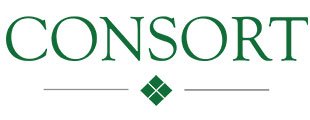

Increase in Cost of Working
George Jennings and Kobus van Niekerk
Understanding Increase in Cost of Working (ICOW)
In the event of an indemnifiable insurable loss, the Insured can potentially be exposed to additional costs incurred to rescue the business. In other words, the Increase in Cost of Working (ICOW) refers to the extra money a business will require to operate as normal after something unexpected happens, in order to try and mitigate loss of income.
Fortunately, some material damage policies can be extended to include cover to indemnify the Insured for an Increase in Cost of Working (ICOW) as a result of indemnifiable loss or damage.
Expenditure restrictions for the Increase in Cost of Working (ICOW) extension
1. Expenditure should be of an additional nature.
2. Due to necessity and reasonably incurred.
3. For the sole purpose of avoiding or diminishing reduction in turnover during the indemnity period only.
4. In consequence of the loss or damage.
A limit is placed upon the amount that can be claimed and normally a time deductible will apply.
The circumstances of each individual case require careful consideration, for example, damage to sophisticated office equipment can affect production. The nature of the property insured for material damage and the requirements of any business in question may require a full investigation.
The request for a stand-alone extension to cover the Increase in Cost of Working (ICOW) only, should be carefully considered. It should only be granted in exceptional circumstances and should then be restricted in such approved cases.
Where the Increase in Cost of Working (ICOW) extension is not sufficient
In many instances where the Increase in Cost of Working (ICOW) extension is not sufficient, the full Business Interruption insurance is recommended. It is not the intention to discuss the full Business Interruption insurance policy, however, Consequential Loss insurance cannot be ignored in this instance.
Consequential Loss insurance is limited to loss of gross profit due to:
a. Reduction in turnover, and
b. Increase in cost of working.
Certain businesses may only function or operate under circumstances where a substantial interruption loss, likely to result, would require an immediate increase in the cost of working cover.
Unlike the material damage indemnity, the Increase in Cost of Working (ICOW) extension of a pure Consequential Loss policy does have an indemnity formula to prevent enrichment.
Provision for Additional Increase in Cost of Working (AICOW)
The Additional Increase in Cost of Working (AICOW) is an extension to the Business Interruption (BI policy but as such the abbreviation is used commonly in the industry. Under the policy it is referred to as Additional Increase in Cost of Working.
The policy also makes provision for Additional Increase in Cost of Working (AICOW), with the sole purpose of avoiding or diminishing of turnover / revenue, which is not available as an extension to the primary (underlying) material damage policy.
At present, markets tend to provide Increase in Cost of Working (ICOW) indemnity with arbitrary figures and indemnity periods with a relatively small time deductible. When underwriting Increase in Cost of Working (ICOW) it is important to consider the nature of the material damage equipment to be insured. For example, medical emergency equipment with a critical usage factor supplying lifesaving services. The equipment is expensive and temporary / substitute replacements are just as expensive.
The premium either follows the material damage rate (which is already, as a rule competitive) or a ‘common rate’ used in the insurance industry.
If you would like to speak to an expert, please contact your Broker directly, who in turn may then need to approach Consort to assist with your requirements.
You can look forward to an article which will deal with Business Interruption insurance.
Consort Technical Underwriting Managers (Pty) Ltd is an Authorised Financial Services Provider (FSP 2273) and underwritten by Lombard Insurance Company Limited (FSP 1596) an Insurer licensed to conduct non-life insurance business.




